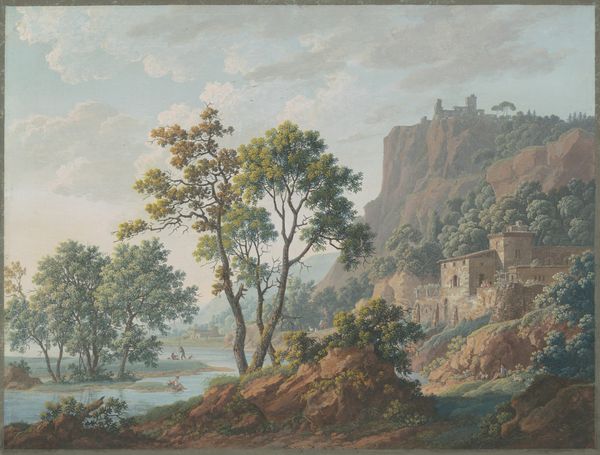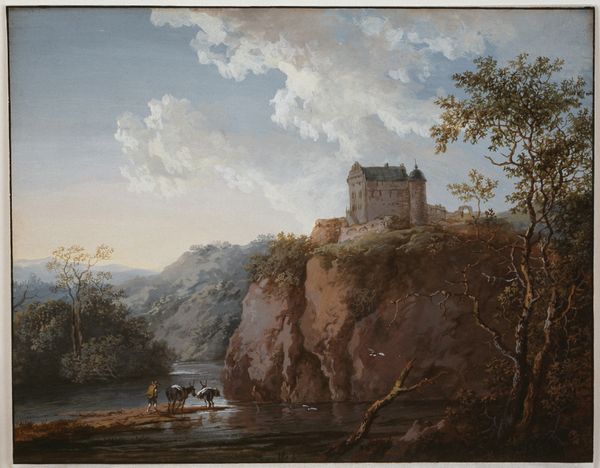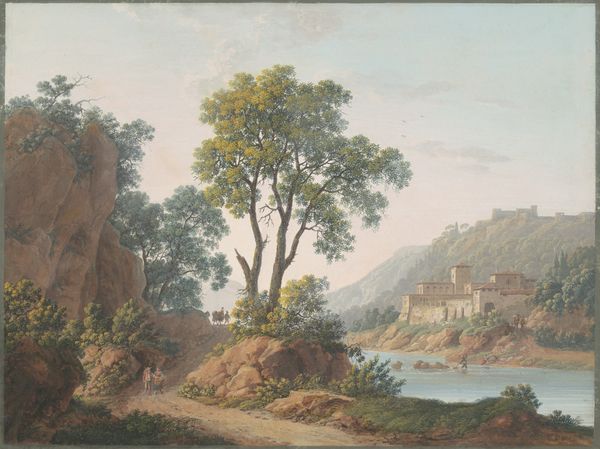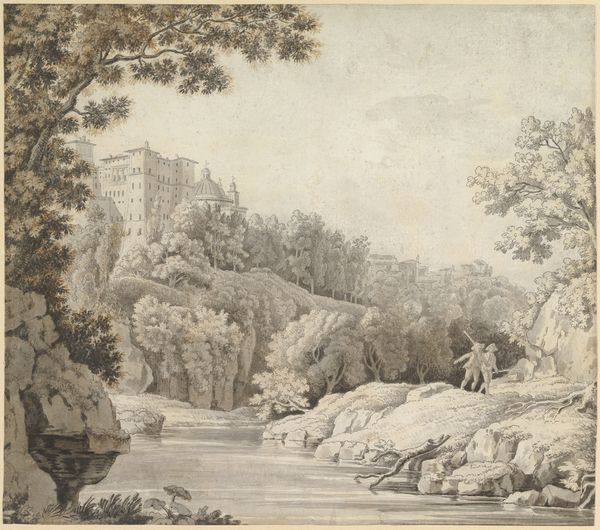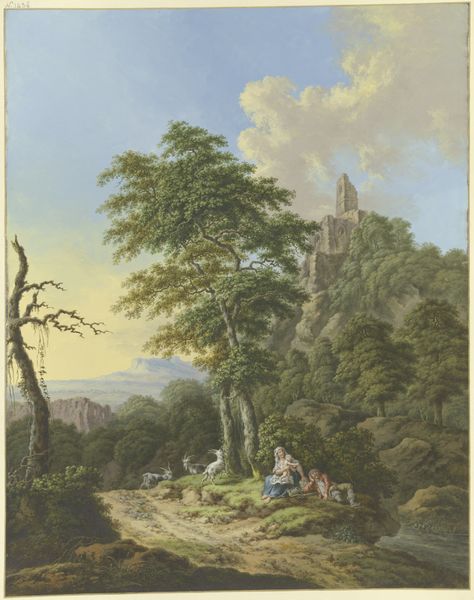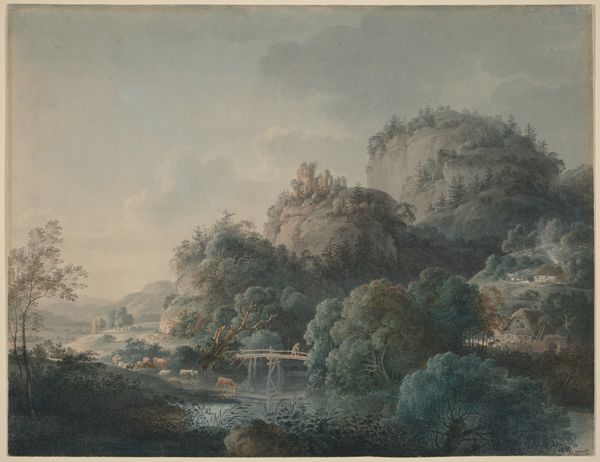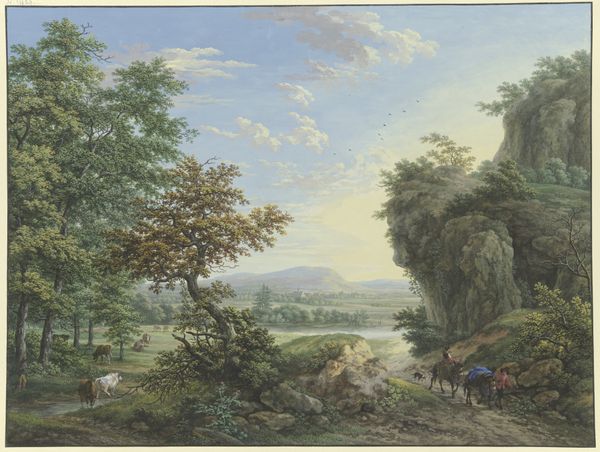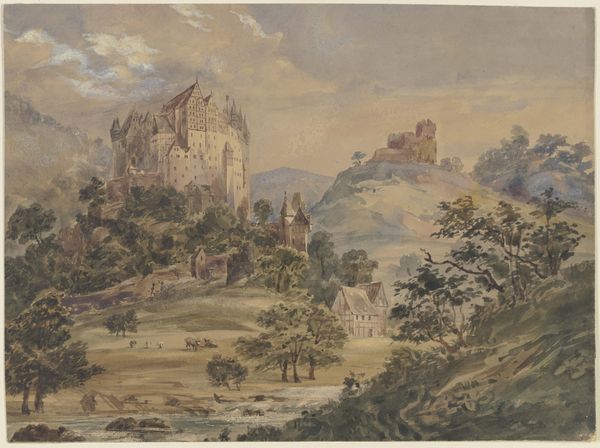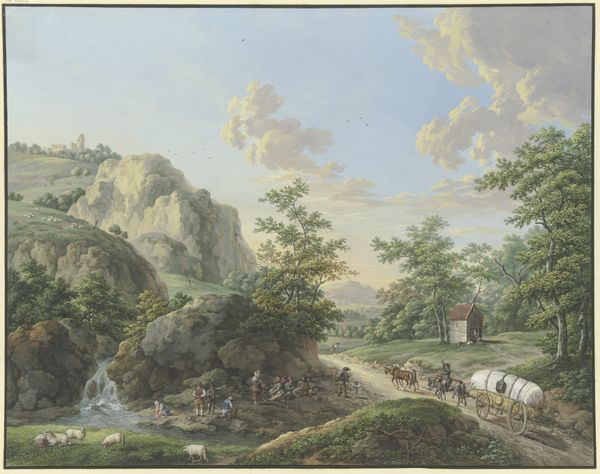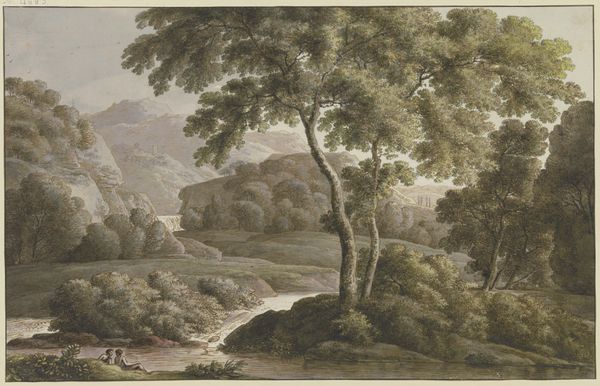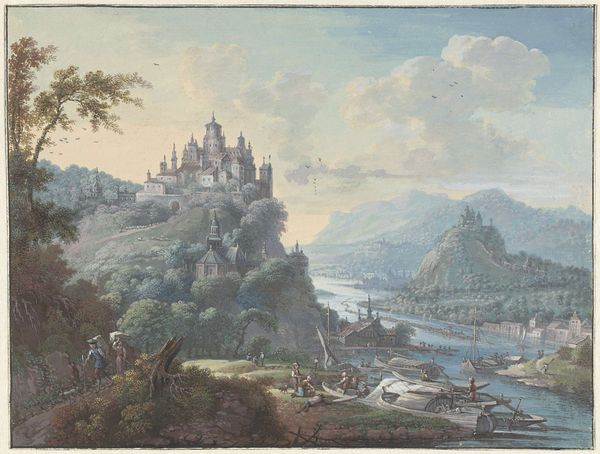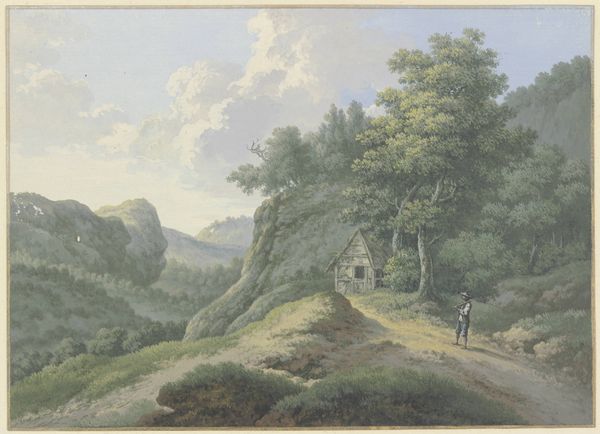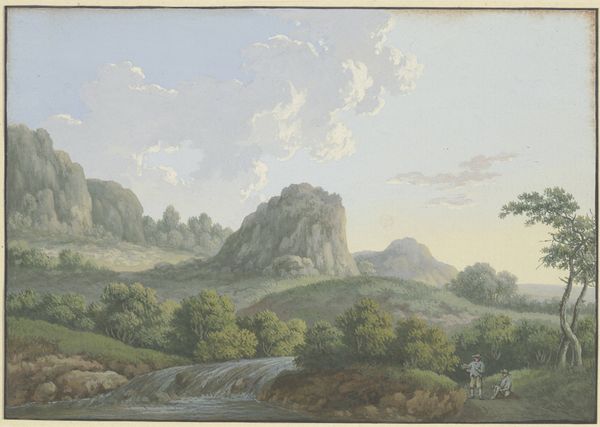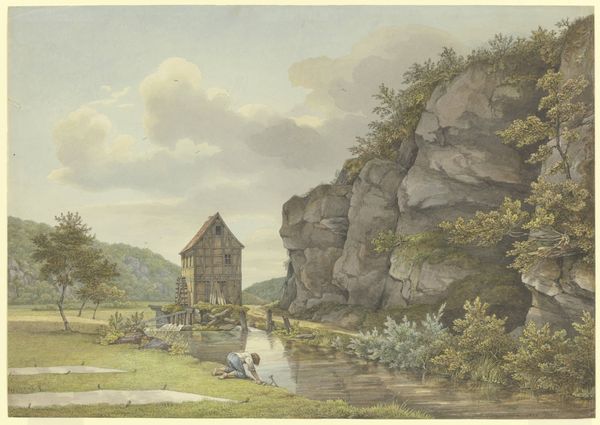
drawing, coloured-pencil, tempera, plein-air, paper, watercolor
#
drawing
#
coloured-pencil
#
tempera
#
plein-air
#
landscape
#
paper
#
watercolor
#
coloured pencil
#
romanticism
#
watercolor
Copyright: Public Domain
Friedrich Rauscher rendered this delicate pastel landscape, Schloß zu Hirschberg an der Saale im Voigtland. While we can't pinpoint the exact date, Rauscher was working during a time of significant social change, including shifts in power dynamics that were influencing artistic expression. This serene landscape is not just a depiction of a place; it’s a lens through which we can consider the relationships between people, power, and the land itself. In the foreground, we see figures, perhaps landowners or overseers, which hints at the social hierarchy underpinning even the most picturesque scenes. The castle, dominating the hilltop, symbolizes authority and control. The river, winding through the landscape, and the small figures with their herd also suggest a narrative about land use and the lives of those who work it. Consider how Rauscher, as an artist, chooses to frame this view. Does he challenge the conventional representations of pastoral life, or does he reinforce them? As you contemplate the image, think about the stories it tells and those it leaves unsaid, and how these elements invite us to reflect on the intersections of history, place, and identity.
Comments
No comments
Be the first to comment and join the conversation on the ultimate creative platform.
